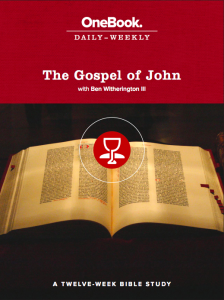15 When they had finished eating, Jesus said to Simon Peter, “Simon son of John, do you love me more than these?” “Yes, Lord,” he said, “you know that I love you.” Jesus said, “Feed my lambs.” 16 Again Jesus said, “Simon son of John, do you love me?” He answered, “Yes, Lord, you know that I love you.” Jesus said, “Take care of my sheep.” 17 The third time he said to him, “Simon son of John, do you love me?” Peter was hurt because Jesus asked him the third time, “Do you love me?” He said, “Lord, you know all things; you know that I love you.” Jesus said, “Feed my sheep. 18 Very truly I tell you, when you were younger you dressed yourself and went where you wanted; but when you are old you will stretch out your hands, and someone else will dress you and lead you where you do not want to go.” 19 Jesus said this to indicate the kind of death by which Peter would glorify God. Then he said to him, “Follow me!” (John 21:15–19 NIV)
We’ve now come to the heart of the matter. There is a progression to what is said here, as we shall see. After they had finished enjoying breakfast together, rather like old times, no doubt, Jesus asks a cryptic question. Notice first that Jesus addresses Peter not by the nickname he gave him (Cephas = rock), but by his given name, Simon, and he even adds the patronymic, “son of Jonah/John.” Jesus then is starting over with Simon, and he asks, “Do you love me more than these?” This might mean, “Do you love me more than the other disciples love me?” It might mean, “Do you love me more than you love them?” Finally it might mean, “Do you love me more than you love these things?” (i.e., fishing, etc.). In view of the fact that he has just come from fishing, it is very possible that Peter would have understood the question the last way, but it is ambiguous. In any case the point is, Does Peter love Jesus more than all else?
Peter’s response is interesting. “Yes, Lord, you know that I love you.” Jesus then gives Peter a commission—“Feed my lambs.” Again a second time Jesus asks the same question, except we do not have the “more than these” clause attached. Again Jesus calls him Simon son of Jonah/John. And again Peter responds, “Yes, Lord, you know that I love you.” The commission this time is a bit different—“Take care of my sheep” (or “shepherd my grown sheep”).
Then there is a third question apparently identical to the second. “Simon son of Jonah/John, do you love me?” This time Peter is deeply hurt. He begins to weep and responds, “Lord, you know all things; you know that I love you.” The third commission then is not merely a call to tend to the mature followers, but to teach them. Jesus has taken Peter through the whole recommissioning process, and it was emotional.
But no sooner had Jesus done this than he tells Peter what is in store for him if he takes up these commissions: “Very truly I tell you,” meaning “I’m definitely telling you the truth.” “When you were younger you dressed yourself and went where you wanted; but when you are old you will stretch out your hands and someone else will dress you and lead you where you do not want to go.” At this juncture we have a comment from John the editor: “Jesus said this to indicate the kind of death by which Peter would glorify God.” Like Jesus’ death, Peter’s death would also glorify God. Peter too would die by crucifixion around AD 68, a considerable period of time before this gospel was written. This section of the narrative tells us that Jesus added, “[Whatever the case, you] follow me!”
Questions for Reflection
-
Why a threefold restoration of Peter?
-
What was Peter being recommissioned to do?
- What was Jesus implying about Peter’s death, and do you think it was reassuring that Jesus suggested it would not happen until Peter was old?
 Did you enjoy this entry? Discover our OneBook: Daily-Weekly Bible studies, of which this entry is a part. The OneBook: The Gospel of John by Ben Witherington study takes readers through one of the most beloved and important Gospels for understanding the identity of the Son of God and his mission in our world. Order the book and video studies from our store here.
Did you enjoy this entry? Discover our OneBook: Daily-Weekly Bible studies, of which this entry is a part. The OneBook: The Gospel of John by Ben Witherington study takes readers through one of the most beloved and important Gospels for understanding the identity of the Son of God and his mission in our world. Order the book and video studies from our store here.




2 Responses
what is the explaination when the name of john,peter and jonah meet in one family why it is the video appair in my experience
Thank you very much for this article. Very helpful in my bible study. I love to read more.